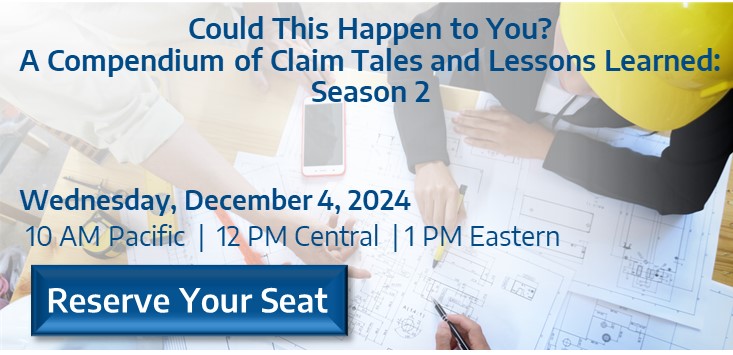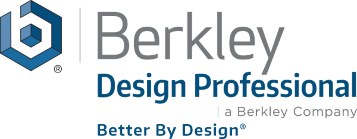
Presented by:
Diane P. Mika, Senior Vice President, Risk Management Officer, Berkley Design Professional
Anthony Andersen, Senior Vice President, Professional Liability Claims Manager, Berkley Alliance Managers
Lisa McKay, Assistant Vice President, Senior Claims Examiner, Berkley Alliance Managers
Liz Molina, Assistant Vice President, Senior Claims Examiner, Berkley Alliance Managers
Mark A. Froehlich, Esq. Assistant Vice President, Senior Claims Examiner, Berkley Alliance Managers
Wednesday, December 4, 2024
10-11:15 AM Pacific
12-1:15 PM Central
1-2:15 PM Eastern
Earn Learning Units
Approved for 1.25 AIA Learning Units
Approved for 1.25 RCEP Professional Development Hours+
Health, Safety, and Welfare Qualified
Berkley DP policyholders who participate in this program can qualify for a 15% Risk Management Education credit. Contact your agent for further information*
This webinar has been recorded and is available on demand for Berkley Design Professional policyholders and our appointed agents and brokers on the BDP Risk® Learning Management System.
bdp Risk® lms loginIn Season 2 of “Could This Happen to You,” Berkley DP claims examiners discuss four new claim tales. Each episode sets the stage with the project type, delivery method, and parties involved. You’ll get the juicy details of the problems that arose and discover the realities of the final resolution and meaningful lessons learned, providing you with valuable insights to help avoid or mitigate similar situations.
(more…)


